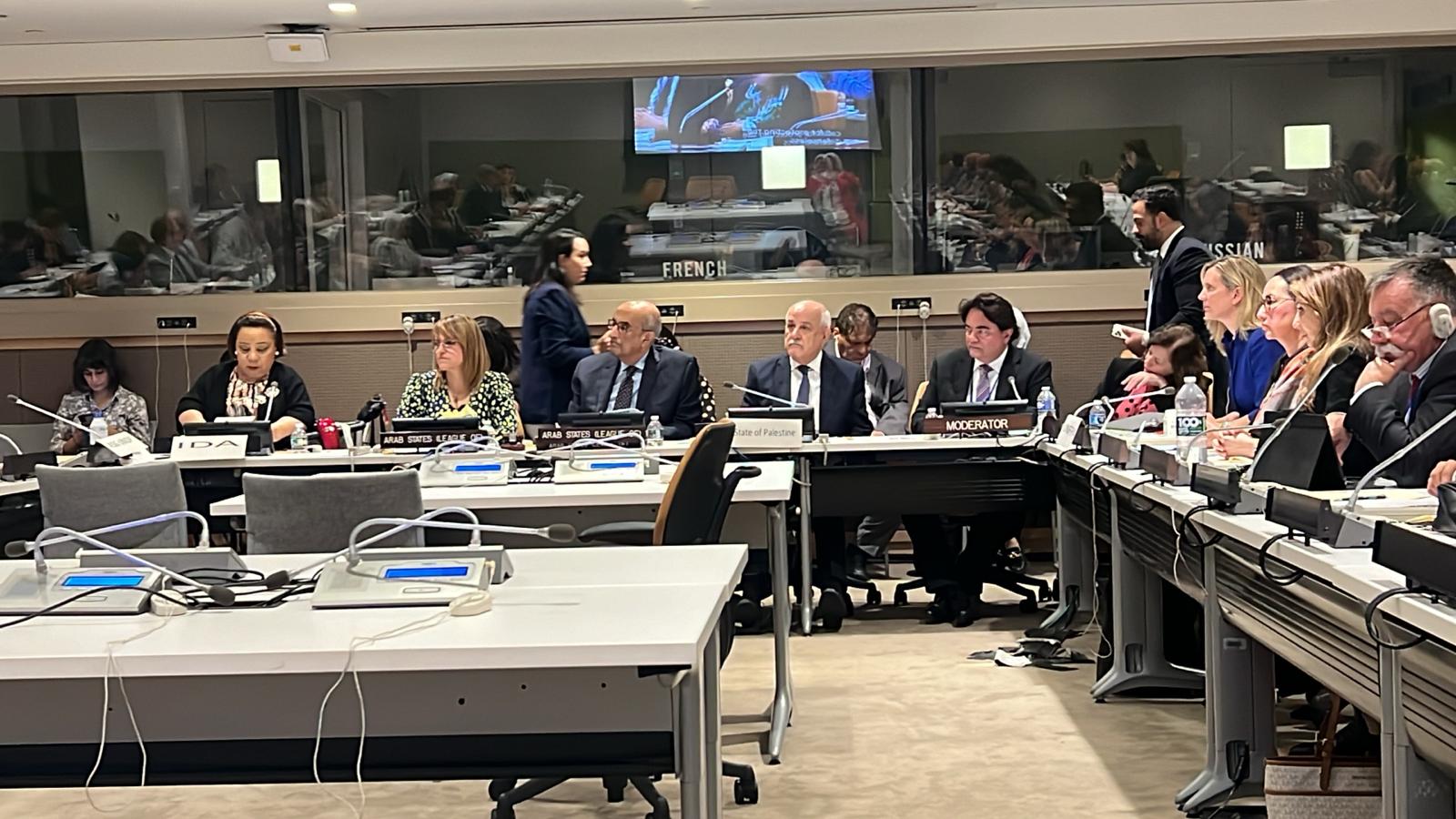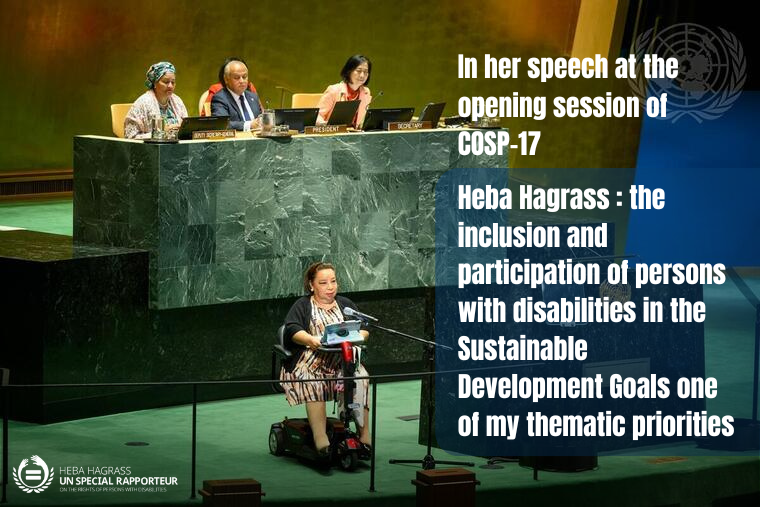GENEVA – Marking the Hamas attack on 7 October 2023, the Israeli attack against the Palestinian population in Gaza that followed and consequent expansion of violence to the rest of the occupied Palestinian territory and other countries in the region, UN experts* today recalled the unbearable human cost of this escalation and reiterated the immediate need for prompt action to end the cycle of violence and for accountability. They issued the following statement:
“The past year has seen a devastating escalation in human suffering, with severe consequences for the Palestinian people, Israelis and the entire Middle East region. We express today, our heartfelt compassion to all victims and their families, especially the children, who should have been spared the scourge of war, and recall the heavy human cost of this conflict and immediate need for peace and accountability.
On 7 October 2023, Hamas and other Palestinian armed groups killed approximately 1,200 persons in Israel, of whom at least 809 were civilians, including women, children and older persons. On this day, 252 people were abducted and taken to Gaza as hostages and of these nearly 100 remain in captivity.
The crimes committed on that day, including murder, hostage-taking, and sexual violence against women and girls, amount to serious violations of international law and constitute war crimes, and possibly crimes against humanity.
The ensuing military attack by Israel on Gaza has killed approximately 42,000 Palestinians in Gaza, including 17,000 children injured more than 97,000, many with lifelong injuries, as of 6 October 2024, and displaced nearly 2 million. The majority of those killed are children and women, while an estimated 10,000 Palestinian bodies remain under the rubble with no possibility to retrieve and identify them to bring solace to grieving families. In the rest of the occupied Palestinian territory, nearly 700 have been killed including 176 children. Israeli Forces also killed 986 healthcare workers, humanitarian workers, among them 225 UNRWA staff, and 126 journalists, as well as destroyed hospitals, schools, and refugee camps, leaving no safe place in Gaza.
The serious violations of international law such as, murder, intentional targeting of civilian objects, disproportionate and indiscriminate attacks, starvation, forcible transfer, arbitrary displacement, sexual violence, persecution, and outrages against life and dignity, including disrespect for the dead, committed by Israeli Forces since the beginning of the war in Gaza in October 2023 constitute war crimes and possibly crimes against humanity. As a result, the International Court of Justice (ICJ) warned there was a real and imminent risk of irreparable prejudice to the right of Palestinians to be protected from genocide.
International judicial mechanisms, the UN and the international community should thoroughly, impartially, and independently investigate these grave violations, establish chain of command, prosecute and punish perpetrators, and ensure full reparation for victims and their families. Parties to the conflict must allow prompt and full access to evidence to establish facts and ensure accountability for perpetrators.
As the Secretary General stated nearly one year ago, the violence on 7 October did not happen in a vacuum. Obscured by false narratives, and years of discrimination, racial segregation and/or apartheid perpetrated against the Palestinian people, as recognised by the ICJ on 19 July 2024, this war risks leading to the erasure of Palestinian presence in the occupied Palestinian territory and an endless reality of insecurity and enormous suffering for the Palestinian and Israeli people alike.
We continue to urge the international community to ensure an end to transfers of arms by States and companies to Israel, including through proxies, to avoid responsibility in war crimes and crimes against humanity by complicity.
We are alarmed by the expansion of the violence and hostilities in other countries in the region, in particular the escalation in Lebanon, which has so far resulted in the death of more than 2,000 persons, including women and children, the injury of more than 9,500 persons, and displacement of hundreds of thousands. This spillover of hostilities blatantly undermines international law and the UN Charter and endangers peace and stability of a region that has suffered decades of conflicts.
All parties to the conflict with the support of the international community must:
- Immediately cease hostilities and guarantee safety and security of civilian populations, including through full compliance with UN resolutions and the ICJ provisional measures to Israel and Gaza;
- Immediately and unconditionally release all hostages detained in Gaza, and thousands of Palestinians arbitrarily held in Israeli detention;
- Establish the fate and whereabouts of victims of enforced disappearances and acts tantamount to;
- Ensure unhindered access of humanitarian relief and humanitarian workers in Gaza;
- Allow full and unrestricted access to UN independent experts to Israel and the occupied Palestinian territory, to conduct investigations into violations of international law, in particular arbitrary killings, enforced disappearances, and torture;
- Immediately and unconditionally return dead bodies and human remains retained by parties to the conflict, including hundreds of Palestinian bodies withheld for decades, and seek the assistance of international community to retrieve, identify and return bodies to families;
- Halt escalation to other countries in the region;
- Fully cooperate with the international community to realise the Palestinian people’s right to self-determination, as necessary to pave the way for sustainable peace and accountability and turn the page on decades of violence and injustice, including through the comprehensive implementation of the ICJ advisory opinion 2024.
The experts reiterated their availability to assist in genuine efforts to establish truth, justice and reparation for violations of international law in the context of this conflict.”
*The experts: Morris Tidball-Binz, Special Rapporteur on extrajudicial, summary or arbitrary executions; Francesca Albanese, Special Rapporteur on the situation of human rights in the Palestinian territories occupied since 1967; Ashwini K.P. Special Rapporteur on contemporary forms of racism, racial discrimination, xenophobia and related intolerance; Fernanda Hopenhaym (Chairperson), Lyra Jakulevičienė (Vice-Chair), Pichamon Yeophantong, Damilola Olawuyi, Robert McCorquodale, Working Group on the issue of human rights and transnational corporations and other business enterprises, Farida Shaheed, Special Rapporteur on the right to education; Tomoya Obokata, Special Rapporteur on contemporary forms of slavery, including its causes and consequences; Olivier De Shutter, UN Special Rapporteur on extreme poverty and human rights; Mary Lawlor, Special Rapporteur on the situation of human rights defenders; Gabriella Citroni (Chair-Rapporteur), Grażyna Baranowska (Vice-Chair), Aua Baldé and Ana Lorena Delgadillo Pérez, Working Group on Enforced or Involuntary Disappearances; Mama Fatima Singhateh, Special Rapporteur on sale the and sexual exploitation of children; Gina Romero, Special Rapporteur on the Rights to Freedom of Peaceful Assembly and of Association; Ben Saul, Special Rapporteur on the promotion and protection of human rights and fundamental freedoms while countering terrorism; Irene Khan, Special Rapporteur on the right to freedom of opinion and expression; Surya Deva, Special Rapporteur on the right to development; Laura Nyirinkindi (Chair), Claudia Flores (Vice-Chair), Dorothy Estrada Tanck, Ivana Krstić and Haina Lu, Working group on discrimination against women and girls; George Katrougalos, Independent Expert on the promotion of a democratic and equitable international order; Nicolas Levrat, Special Rapporteur on the human rights on minority issues; Alexandra Xanthaki, Special Rapporteur in the field of cultural rights; Paula Gaviria Betancur, Special Rapporteur on the human rights of internally displaced persons; Cecilia M. Bailliet, Independent Expert on human rights and international solidarity; Margaret Satterthwaite, Special Rapporteur on the independence of judges and lawyers; Heba Hagrass, Special Rapporteur on the rights of persons with disabilities; Astrid Puentes Riaño, Special Rapporteur on the human right to a clean, healthy and sustainable environment; Reem Alsalem Special Rapporteur on violence against women and girls, its causes and consequences.
** See amongst others special procedures press release on 12 October 2023, 19 October 2023, 27 November 2023, 1 February 2024, 9 February 2024, 7 March 2024 and 24 May 2024.
The Special Rapporteurs, Independent Experts and Working Groups are part of what is known as the Special Procedures of the Human Rights Council. Special Procedures, the largest body of independent experts in the UN Human Rights system, is the general name of the Council’s independent fact-finding and monitoring mechanisms that address either specific country situations or thematic issues in all parts of the world. Special Procedures’ experts work on a voluntary basis; they are not UN staff and do not receive a salary for their work. They are independent from any government or organization and serve in their individual capacity.






